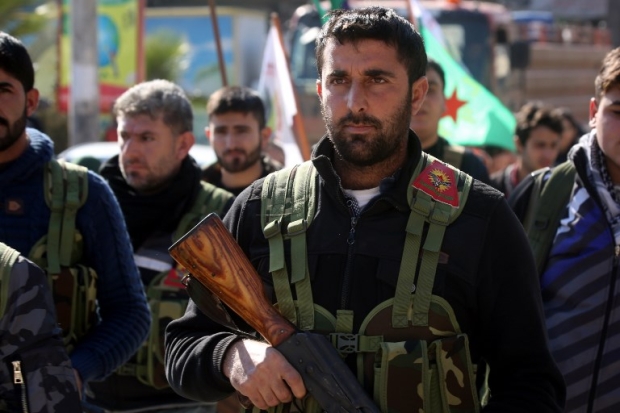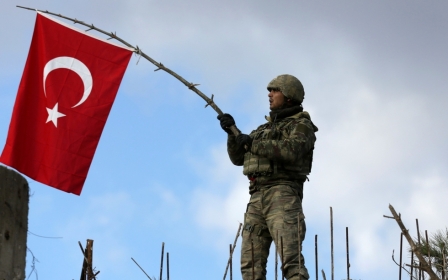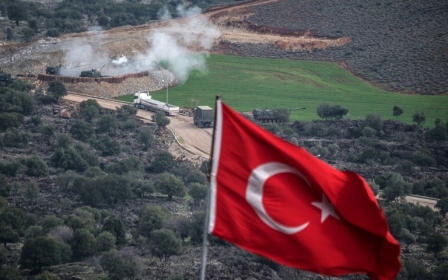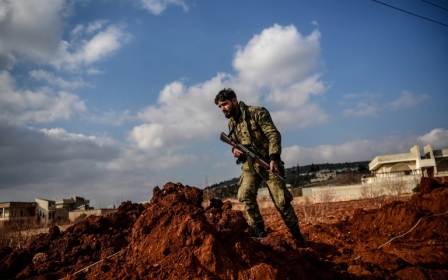How the US betrayed Turkey in Syria
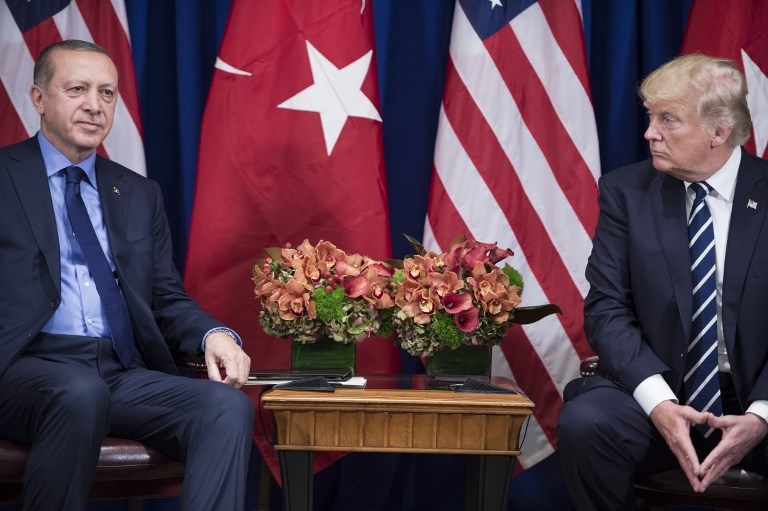
According to Turkish media circles, Ibrahim Kalen, a spokesman for President Recep Tayyip Erdogan, received a call on 26 January from Lieutenant General HR McMaster, the US national security adviser, vowing that the United States would stop arms shipments to the Syrian Kurdish Democratic Union Party (PYD) and the People's Protection Units (YPG).
This was the second time the Trump administration made such a promise to Turkey. On 27 November, US President Donald Trump told Erdogan that his administration would not supply more weapons to the Syrian Kurdish fighters. Yet, only a few days later, a US military arms convoy was seen crossing the Iraq-Syria border en route to Kurdish units in the Raqqa region.
So should Turkey take McMaster's promises seriously this time?
Close economic ties
In fact, Turkey has seen nothing other than lies and betrayal in the US approach to the Syrian crisis since 2011. This was not anticipated in Ankara, not just because the two countries have been NATO allies for decades, but also because Turkey maintains close economic, financial, cultural and military ties with the US.
In the early stages of the Syrian crisis, prior to Russia's direct intervention, Syria had been turned into a massive fighting ground between opposition groups on the one hand and Syrian government troops and pro-Iranian Shia militias on the other - yet the administration of former US president Barack Obama refused to intervene in favour of the Syrian people.
The PKK's violation of the ceasefire in the summer of 2015, and the subsequent collapse of the peace process, generated a growing anxiety about the influence of PKK affiliates in Syrian Kurdish areas
Even prior to the emergence of al-Nusra Front and the Islamic State (IS), Washington was reluctant to provide any substantial support for Syria's opposition. It did not even allow its own Middle Eastern allies to provide opponents of President Bashar al-Assad's government with urgently needed arms that could have enabled them to stand up to the brutality of the government's air attacks.
After the rise of al-Nusra Front and IS at the expense of other opposition groups, the Obama administration completely abandoned the objective of ousting Assad, followed shortly afterwards by Saudi Arabia and other Arab states.
By late September 2015, Russia had become directly involved in the Syria conflict, drastically changing the balance of power. Instead of addressing the new dynamics, the US left Turkey on its own against the Russians.
Announcing that its mission in Syria was confined to fighting "terrorism", the US government moved to set up operational coordination with Moscow to avoid any potential clashes between the two sides on the ground or in the skies of Syria. Upon the downing of a Russian fighter jet in November 2015 by the Turkish air force, Ankara received nothing but verbal support from Washington.
Position of indifference
The Obama administration justified its indifference by claiming that Syria was never an area of strategic significance for the US. Yet that position of indifference was soon to develop into a dangerous disagreement with Ankara, when Washington started supporting the PYD and YPG with arms and ammunition.
In the earlier days of the Syrian revolution, the PYD was not a major force in Syrian Kurdish regions - but the group embarked on a brutal campaign to exclude Kurdish forces affiliated with the Kurdish National Council, a member of the Syrian opposition's national coalition.
When the battle began in 2014 to free the Kurdish town of Kobane from IS, the PYD and its militias expressed their readiness to collaborate with the Americans.
But the PKK's violation of the ceasefire in the summer of 2015, and the subsequent collapse of the peace process, generated a growing anxiety about the influence of PKK affiliates in Syrian Kurdish areas.
In the ensuing months, Turkey cited more evidence of close cooperation between the PKK in Turkey and the PYD and YPG in Syria - not just at the level of training and communication, but also with regards to the supply of arms and explosives.
Even Ashton Carter, Obama's defence secretary, in 2016 acknowledged the organic relationship between his administration's Kurdish allies in Syria and the PKK in Turkey.
US support for Syrian Kurds
Support from the US military, both in terms of arms and training, helped the PYD and YPG to acquire full control over the Kurdish regions in Syria's north. Observing the developing relationship between the PYD and the Americans with utmost concern, Ankara declared that it would not allow an armed Kurdish presence west of the Euphrates.
Soon afterwards, the US support for Syria's Kurds generated another problem. The Kurds do not have a definitive majority in Syria's north, and armed Kurdish forces have been accused of implementing a policy of ethnic cleansing against neighbouring Arabs and Turkmen.
However, so long as the Kurds bore the burden of the confrontation with IS, saving the Americans from having to deploy their own soldiers in the battlefield, Washington looked away.
In contrast, and in a rather naive endeavour, the US in 2015 backed the formation of what came to be known as the Syrian Democratic Forces (SDF), comprising Kurds and a few Arabs, to act as an umbrella for the YPG and other PYD militias.
Towards the end of July 2016, Obama asked Erdogan to allow Kurdish forces to take part in the liberation of the Arab town of Manbij from IS, promising they would return to their positions east of the Euphrates immediately afterwards.
IS was defeated in Manbij in August, but Obama's promise went unfulfilled, and Manbij remains under the YPG's control. In exactly the same way, the liberation of Raqqa last October placed the Arab city under Kurdish control.
Trump follows Obama
In the meantime, the PYD succeeded, through the presence of YPG forces in Manbij, in establishing regular supply routes for Kurdish units in the northwestern Afrin region, turning the area into a fortified citadel for the party and its militias. Despite the criticism it keeps levelling at Obama's Syria policy, the Trump administration has done nothing to change it - not even after the famous promise Trump made to Erdogan that he would stop arms supplies to PYD militias.
If history is anything to go by, the withdrawal of US missiles from Turkey without the knowledge of the Turkish government during the Cuban missile crisis in the early 1960s, and former president Lyndon Johnson's message to Ankara in the mid-1960s over Cyprus, led to a comprehensive review of Turkish foreign policy.
The review resulted in a tangible improvement in relations with the Soviet Union, recognition of the Palestine Liberation Organisation (PLO), and Turkey's membership in the Islamic Conference Organisation (now the Organisation of Islamic Cooperation).
Ankara's determination to execute the Afrin operation and its rapprochement with Russia - including the purchase of a Russian S-400 air defence system - are all indications that the Turkish-American alliance is no longer what it used to be.
- Basheer Nafi is a historian of Islam and the Middle East.
The views expressed in this article belong to the author and do not necessarily reflect the editorial policy of Middle East Eye.
Photo: Turkish President Recep Tayyip Erdogan and US President Donald Trump wait for a meeting at the Palace Hotel during the 72nd United Nations General Assembly on 21 September 21 2017 in New York City (AFP)
New MEE newsletter: Jerusalem Dispatch
Sign up to get the latest insights and analysis on Israel-Palestine, alongside Turkey Unpacked and other MEE newsletters
Middle East Eye delivers independent and unrivalled coverage and analysis of the Middle East, North Africa and beyond. To learn more about republishing this content and the associated fees, please fill out this form. More about MEE can be found here.



